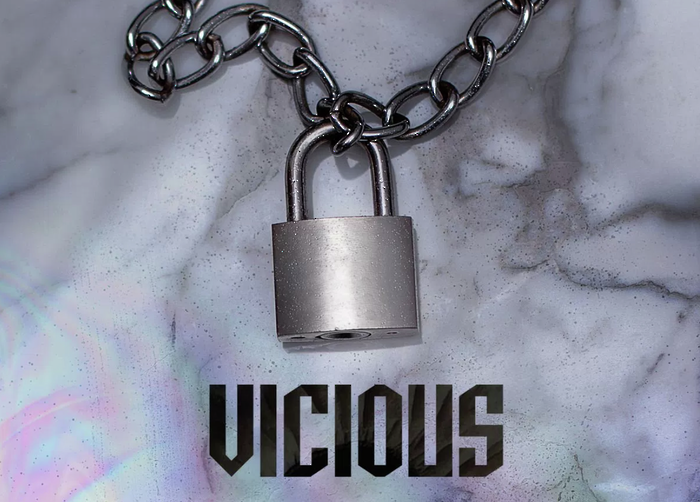Morrissey’s Low in High School review: ‘intertwining the rebellious and reflective’
As an “exemplary fusion” of the antagonistic and the melancholic sides to Morrissey, Connor Dwyer is captured by his politically-charged album

Fans and critics alike have taken to Twitter to mock the track-listing of Low In High School as perhaps ‘the most Morrissey thing ever’, from the politically-charged ‘Who Will Protect Us From The Police?’ to the sexually uncomfortable ‘When You Open Your Legs’ to the morose ‘I Wish You Lonely’. And perhaps they are right; however, Morrissey’s 11th solo studio album has found the exemplary fusion of the political Morrissey we all love (or loathe) and the emotional, sulky attitude Morrissey has so notoriously evoked since his days as The Smiths’ frontman.
The album comes as a notable improvement from Morrissey’s 2014 album World Peace Is None Of Your Business. From the off, the screaming and the harsh guitar rhythm of ‘My Love I’d Do Anything For You’ sets the tone for an angrier, more ‘honest’ album, as producer Joe Chiccarelli is quoted as claiming. Morrissey continues to develop the album from the opening track into a fusion of modern Indie-Rock riffs and electronica, while still evoking the ever-contradictory use of sullen, spiteful lyrics set to jangly, upbeat melodies, typical of 1980s Smiths tracks such as ‘The Boy With The Thorn In His Side’. An example would be the Johnny Marr-styled guitar work under ‘Jacky’s Only Happy When She’s Up On The Stage’. The first single of the album, ‘I Spent The Day In Bed’, is perhaps, I would argue, a modern reincarnation of The Smiths’ sound; looking past the chaotic electronic noise, the structure and odd-humoured lyrics of the song, defeating political norms and life’s mundanity, are typical of 1980s Morrissey.
“Low In High School is an album riddled with Morrissey’s political messages on war, authority, and power”
‘Home Is A Question Mark’ is perhaps the most impressive song of the album, and undoubtedly the song that shall stand out most among others. Beginning with the ominous, brooding guitars and drums, transitioning gradually into Morrissey’s powerful, though now clearly ageing, vocals, the song epitomises why this album is perhaps one of the most powerful and sincere he has released solo. The triumphant vocals remind me clearly of Morrissey’s solo track ‘To Me You Are A Work Of Art’ from the 2006 album Ringleader of the Tormentors, in many ways a similar album for its heavier sound, but with this one more poignant sounding track.
The key turning point for the album is in the over-7-minute-long anti-war epic ‘I Bury The Living’. Low In High School is an album riddled with Morrissey’s political messages on war, authority, and power (and inevitably, his resentment of all three). Alluded to in the visceral chanting of “monarchy, oligarch, head of state, potentate” in ‘I Wish You Lonely’, the raging single word repetition of “honour, mad, cannon-fodder” in ‘I Bury The Living’ returns us to the power of Morrissey’s underlying aim of the album, as it is pieced together: to not merely be a self-reflection, as many of Morrissey’s most sullen and contemplative songs are, but to subvert traditional views of power and legitimacy. It is indeed this almost anarchic purpose to the album that we come to expect from the controversial cover, and we are not disappointed.
From ‘I Bury The Living’ onwards, the album seeps more deeply into the political, with the theme of dictatorship arising on no less than three occasions. Though I have thus far praised the consistency and raw passion in Morrissey’s thematic approach to this album, sadly, it is also the one slight downfall of the album. Morrissey’s writing of the theme of authority becomes overly repetitive; thus, much like the issue with Morrissey’s personal politics, we are greeted with what seems like a condescending political preaching in the lyrics for the majority of the latter half of the album. The redeeming factor to this, however, is that while the lyrics may suffer, the overall song-writing does not. The instrumentals remain complex, accompanied by thoughtful melodies – particularly in ‘In Your Lap’ which, musically, invokes the troubled but strangely beautiful piano work of The Smiths’ ‘Asleep’.
Whether an avid Smiths or Morrissey fan, or a new listener to either, this album is well worth buying, for the best of both worlds, bringing to the modern age The Smiths’ musical legacy while also bringing out the best of Morrissey’s freedom as a solo artist to experiment and compromise. Coming three years since his last album, it is clear to tell three years of work at least are involved in this thoughtfully produced, arranged and composed album, carefully intertwining the rebellious and reflective, the emotive and emotional
 News / Clare Hall spent over £500k opposing busway 24 December 2025
News / Clare Hall spent over £500k opposing busway 24 December 2025 News / Caius mourns its tree-mendous loss23 December 2025
News / Caius mourns its tree-mendous loss23 December 2025 Comment / The ‘class’ of Cambridge24 December 2025
Comment / The ‘class’ of Cambridge24 December 2025 Comment / Yes, I’m brown – but I have more important things to say22 December 2025
Comment / Yes, I’m brown – but I have more important things to say22 December 2025 Interviews / Politics, your own way: Tilly Middlehurst on speaking out21 December 2025
Interviews / Politics, your own way: Tilly Middlehurst on speaking out21 December 2025










